Peanut kernels
Peanut kernels are traded and exported worldwide. They are a highly popular food in both natural and processed forms. Order top-quality peanuts online from wholesaler August Töpfer & Co. sourced from carefully selected producers.
- Atco
- Products
- Nut kernels
- Peanut kernels
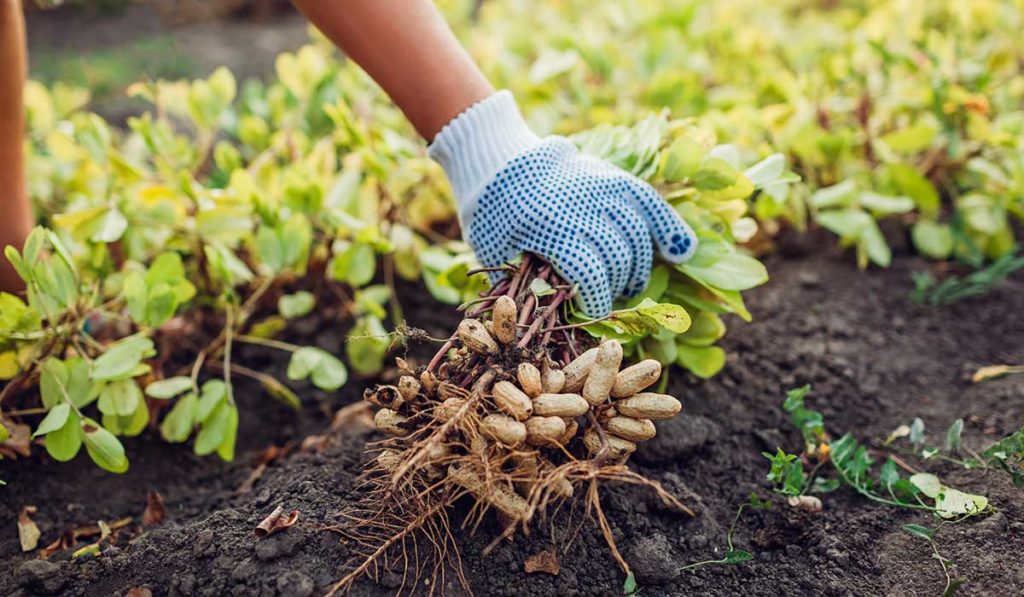
Origin of peanuts
The origin of peanuts lies in South America. Seafarers brought the legume to Africa around 2,000 years ago, where it then continued to spread. Today, peanuts are grown in many tropical and subtropical countries and traded around the world. The most important export countries include India, Argentina, Brazil, the USA and the Netherlands. China also cultivates peanut kernels on a large scale and has positioned itself as one of the biggest producers. However, the country predominantly uses the peanuts for its own domestic needs.Cultivation and processing of peanut kernels
Peanuts are considered a legume. The plant needs plenty of sunlight and well-drained soil to grow. Peanuts can be grown simply by burying an unroasted, germinable peanut kernel around five centimetres deep in the soil. The seedling will be visible after around ten days. After another month, the plant reaches a height of 70 centimetres and produces yellow flowers. The fruit ovules pollinate themselves and grow towards the ground, where they penetrate up to eight centimetres deep. New peanuts then grow under the soil. In fact, this is why peanuts are sometimes also called groundnuts or earthnuts. Around 130 days after sowing, a yellow discolouration of the leaves indicate that the peanuts in the ground are ripe and ready to harvest. The plant is annual as it is removed from the soil for harvesting. This process is usually carried out by machine.
The excavated legumes are dried on the field until the water content has fallen to around 40 percent. Following the harvest and drying on the field, it’s necessary to reduce the water content further to at most five percent, in order to make the peanuts storable and increase their shelf life. Most consumers are unaware of the taste of freshly harvested, untreated peanuts, which is similar to beans and peas.
Indeed, this relationship is reflected by the name “peanut”. Peanuts are available in the wholesale trade and other distribution channels primarily roasted and salted.
The peanut kernels are processed because of the lectins they contain. These protect the legumes from pests but induce vomiting and diarrhoea in humans. The sale and consumption of raw peanuts is therefore uncommon. Cooking or roasting during the production process renders the lectins harmless. Heating to around 150 °C for 30-60 minutes also produces the characteristic flavour of peanuts, familiar to consumers.
Moreover, raw peanut kernels are associated with the risk of mycotoxins or mould toxins. These toxins can result in severe harm to health, even in very low doses, and in the worst case death. However, strict import controls in the USA and the EU prevent the sale of such products to the greatest extent.
Nutritional value and contents of peanuts
Peanuts are characterised by a high protein content of 24 percent. Peanut kernels are therefore suitable as a valuable source of protein, particularly for people with vegetarian or vegan diets. Peanuts are also considered a good supply of energy, since they contain up to 50 percent fat. Most of this fat is in the form of unsaturated fatty acids.
Peanut kernels contain a particularly high amount of magnesium. Around 170 milligrams of magnesium is found in 100 grams of peanuts – more than any other plant-based food. What’s more, 100 grams contains around 3,200 mg of the amino acid L-arginine. This can also be found in other nuts such as Almonds or hazelnuts. This amino acid supports the immune system as well as metabolism and detoxification processes in the body. In addition, it prevents cardiovascular problems and helps with muscle development and tissue repair after injuries or surgery. As mentioned earlier, peanuts are a type of legume. For people with nut allergies, legumes are a good alternative source of arginine.
Other valuable contents of peanuts include minerals, vitamins and secondary plant substances such as vitamin E, calcium, phosphorous and zinc. On the other hand, the legume does not contain any cholesterol. Quite the contrary, the nutrients in peanuts have the effect of lowering cholesterol and blood pressure. But this health benefit is only provided by unsalted peanut kernels. The sodium contained in salt produces the opposite effect.
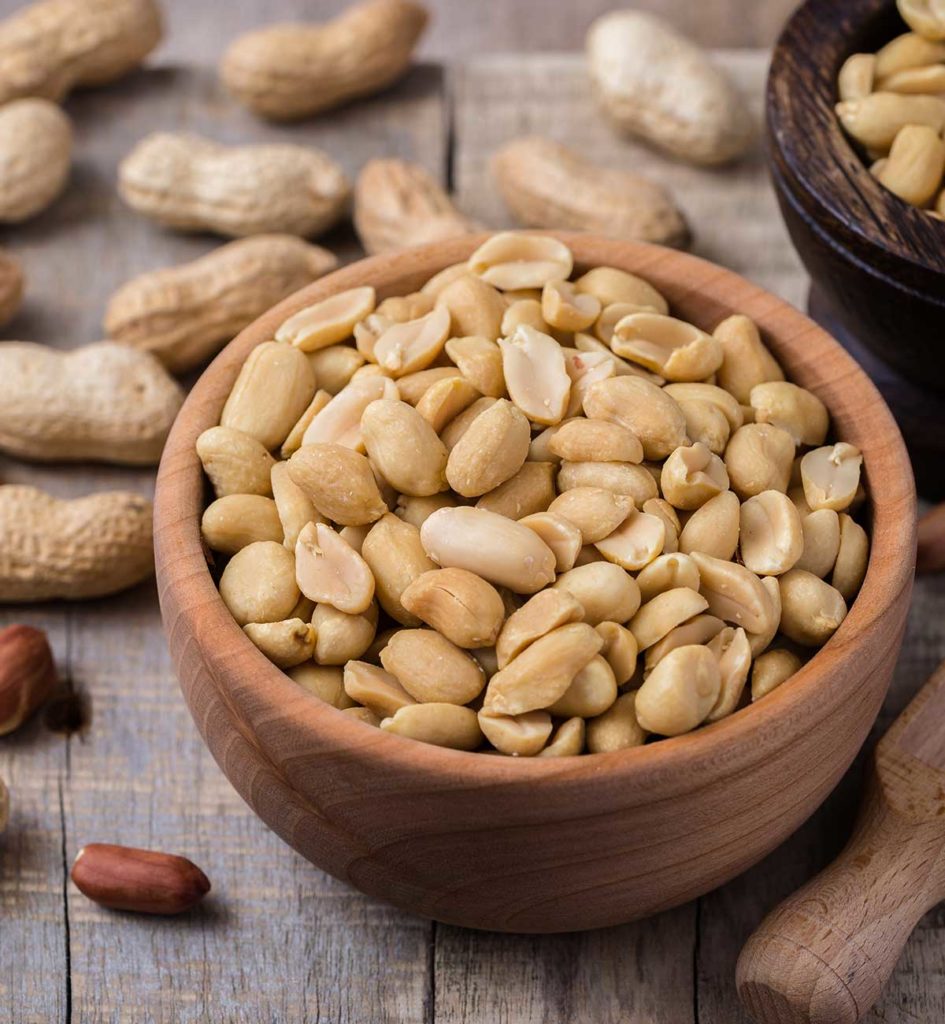
The following table summarises the nutrients contained in peanuts.
| Nutritional value | per 100 grams |
|---|---|
| Calories | Approx. 580 kilocalories |
| Fat | Approx. 50 grams |
| Protein | Approx. 25 grams |
| Carbohydrates | Approx. 15-20 grams |
| Fibre | Approx. 8 grams |
Peanuts as bird feed
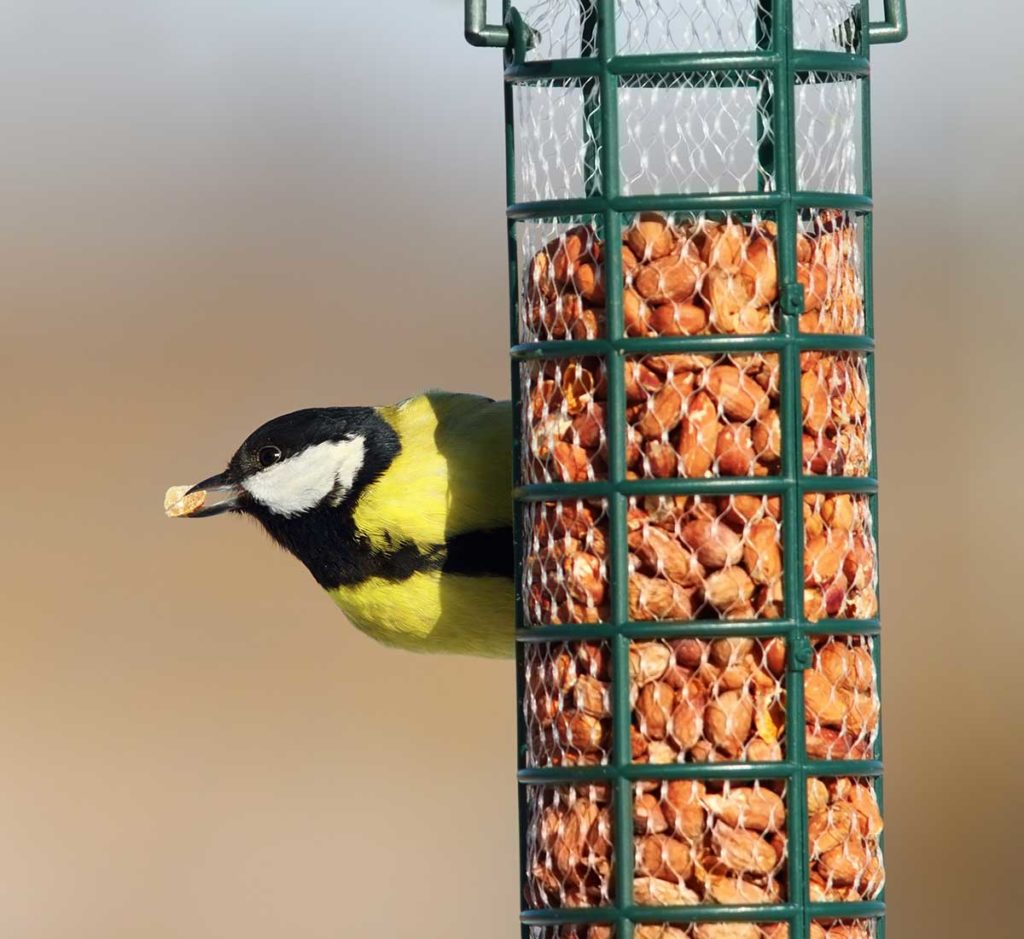
Nuts are generally a nutritious winter feed for birds. Peanuts are also a suitable supplementary feed and a healthy source of energy due to the high amount of essential fatty acids they contain. The high protein content as well as vitamins provide health benefits for birds. But peanuts are not suitable for every kind of bird. Softbills prefer soft feed, as the name suggests. Peanut kernels are only appropriate for hardbills. These have a short, powerful beak that enables them to break open seeds and shell them. At our latitudes, such birds include woodpeckers, titmice, buntings and robins.
Peanuts are not an indigenous type of nut. It is therefore a good idea to mix peanut kernels for birds with other nut varieties. If you place the feed on a patio or balcony, shelled peanut kernels are recommended. This way, no broken shells are left behind. Animals also prefer chopped peanut kernels without the shell, which are neither roasted nor salted. Peanut kernels are suitable for feeding birds all year round.
Peanuts as animal feed
While consumers typically prefer to consume peanut kernels roasted or salted, peanuts intended as animal feed are untreated. This sort of peanut is generally suitable for dogs. But it’s advisable to think carefully about the feed. Peanuts are harmful to the health of dogs with kidney or heart problems as well as obese dogs. Moreover, peanuts have a high histamine content. Like humans, dogs may be affected by an intolerance or allergy that causes symptoms like shortness of breath. In the worst case, it’s even possible for peanut kernels to trigger epileptic attacks. It is therefore recommended to refrain from feeding peanuts to dogs.
Varieties of peanuts
Peanut kernels are not only very popular among animals but also people. We generally prefer peanuts roasted or salted, not natural. Peanuts are available for sale and in the wholesale trade in different varieties. These varieties differ both in terms of taste as well as whether the shell and skin have been removed or not.
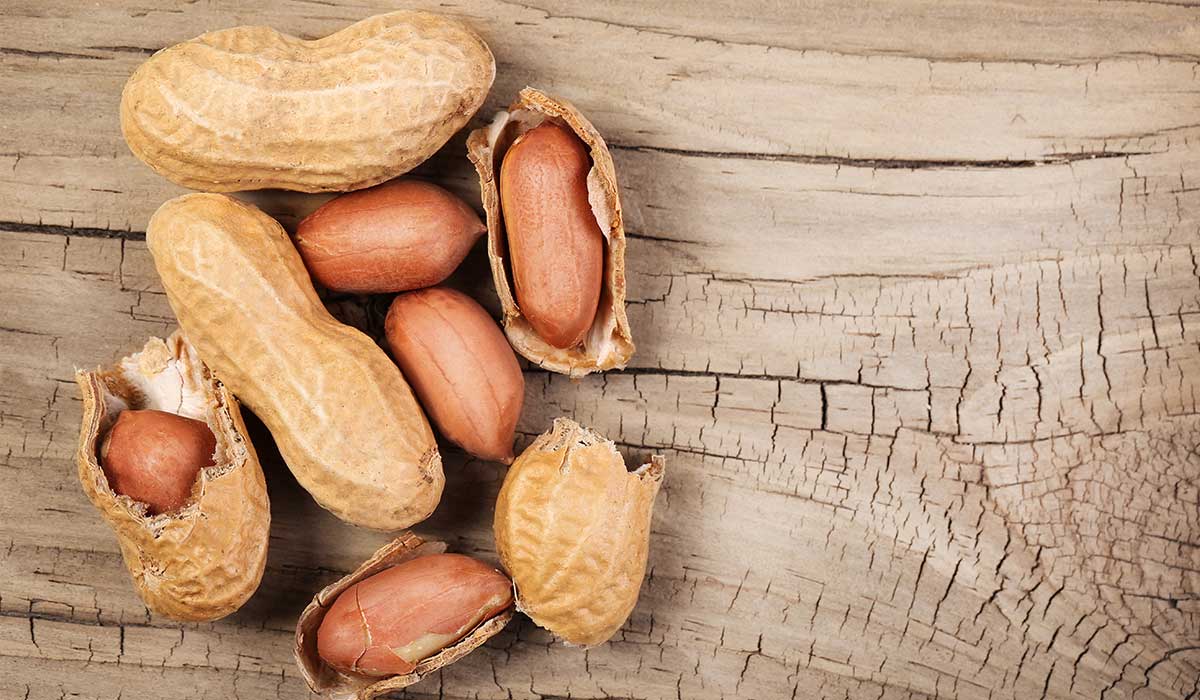 © Gizelka/iStock.com
© Gizelka/iStock.com
With and without the shell
Peanuts with and without the shell are available in the wholesale trade. Both varieties are exposed to high temperatures during the production process to eliminate the lectins. The lower water content also reduces the risk of mould toxins arising during transport and storage. These toxins can attack the immune system and liver, even in very small quantities. For this reason, peanuts in the shell are also treated with high temperatures and are sold roasted.
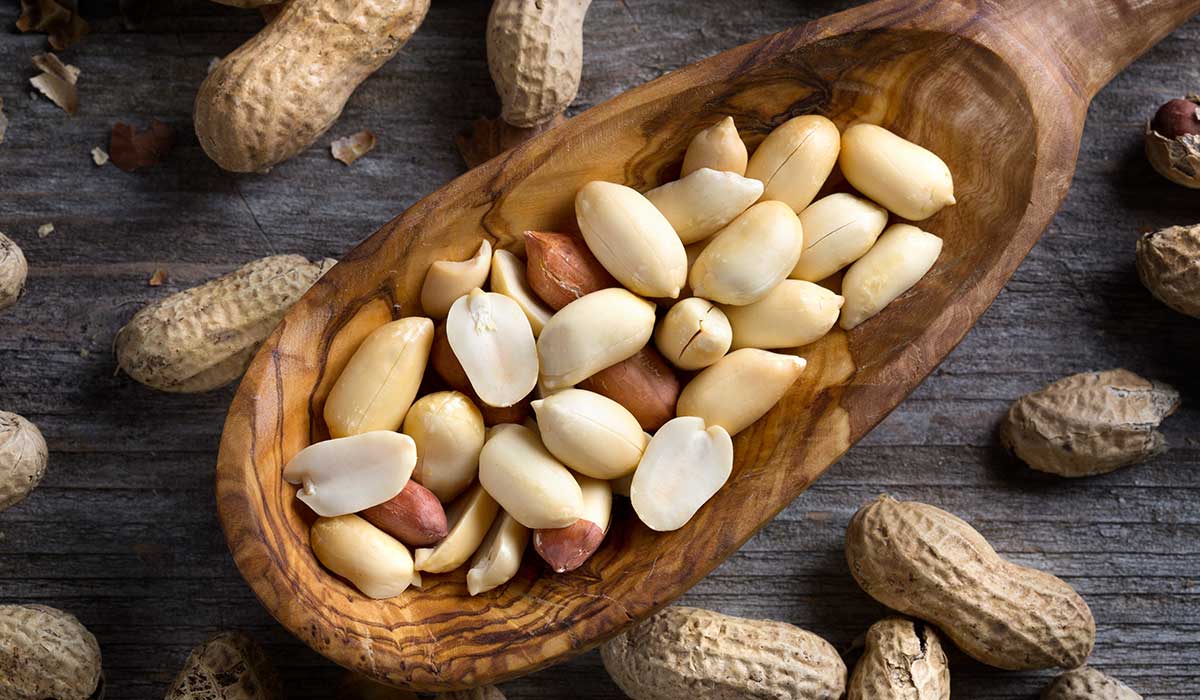 © ollo/iStock.com
© ollo/iStock.com
With and without the skin
Peanuts are naturally enclosed in a brown skin. Peanuts are available in the wholesale trade with and without the skin. Consumers often prefer the hulled variety, since the skin is characterised by a bitter flavour. But there are health benefits to consuming the skin. The bitter substances responsible for the taste stimulate digestion. The antioxidants contained also have a positive effect on health.
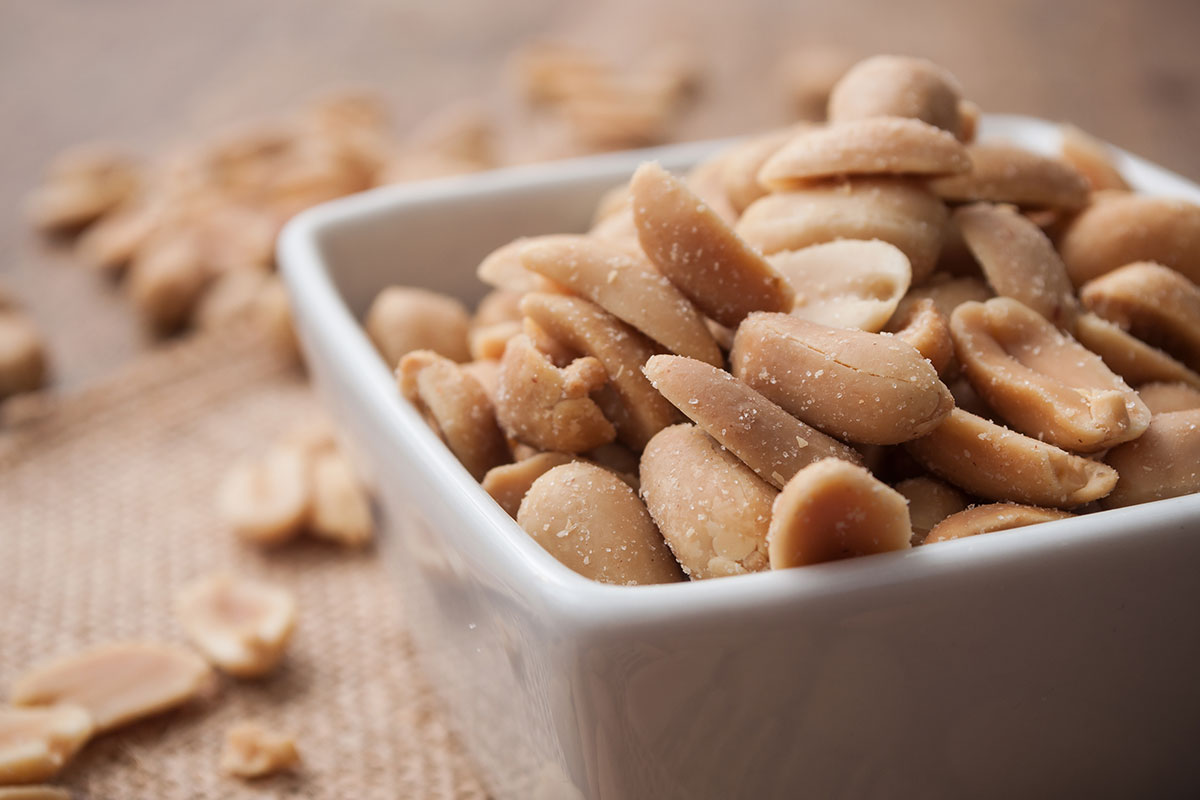 © Neydtstock/iStock.com
© Neydtstock/iStock.com
Flavours
For pure consumption, consumers generally prefer salted and roasted peanuts. Roasting significantly reduces the risk of mould toxins. The healthiest production method sees the peanuts heated in their own oil. The term “hardened fats” on products indicates that additional oil was used.
Boiled peanuts are an unknown variety in Germany, but they have become established as a delicacy in the USA. The proportion of antioxidants and isoflavone is higher in boiled kernels than is the case for the roasted variety. They prevent cardiovascular illnesses, diabetes and cancer. According to studies, the isoflavone content is up to four times higher than for roasted peanut kernels.
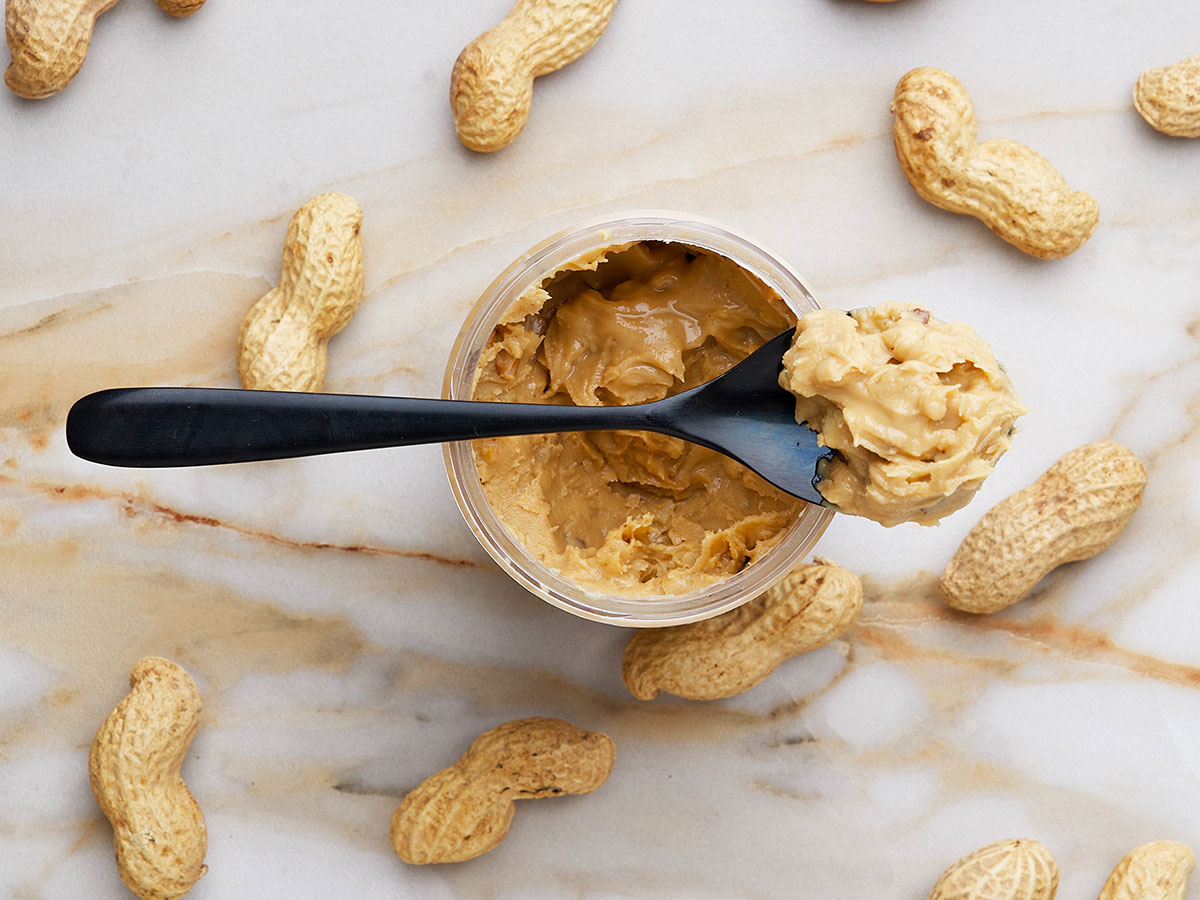 © Corleto Peanut butter/unsplash.com
© Corleto Peanut butter/unsplash.com
Products made from peanut kernels
Many popular products are available on the market which are produced using peanut kernels. One especially popular item in the USA and the Netherlands is peanut butter. To produce peanut butter, peanuts are first cooled and shelled. The skin is removed through blanching. The peanut kernels are then ground and pasteurised. This process kills any bacteria present, without changing the flavour or consistency of the product.
Peanut sauces, peanut puffs and peanut oil are also popular. This edible oil enjoys great popularity particularly among the populations of China and India. The oil is characterised by a distinct mildness and can withstand very high temperatures. Industry uses peanut kernels as a renewable resource for cosmetics, in the chemical industry and for animal feed as an oily feed additive.
Our peanut kernels are certified:
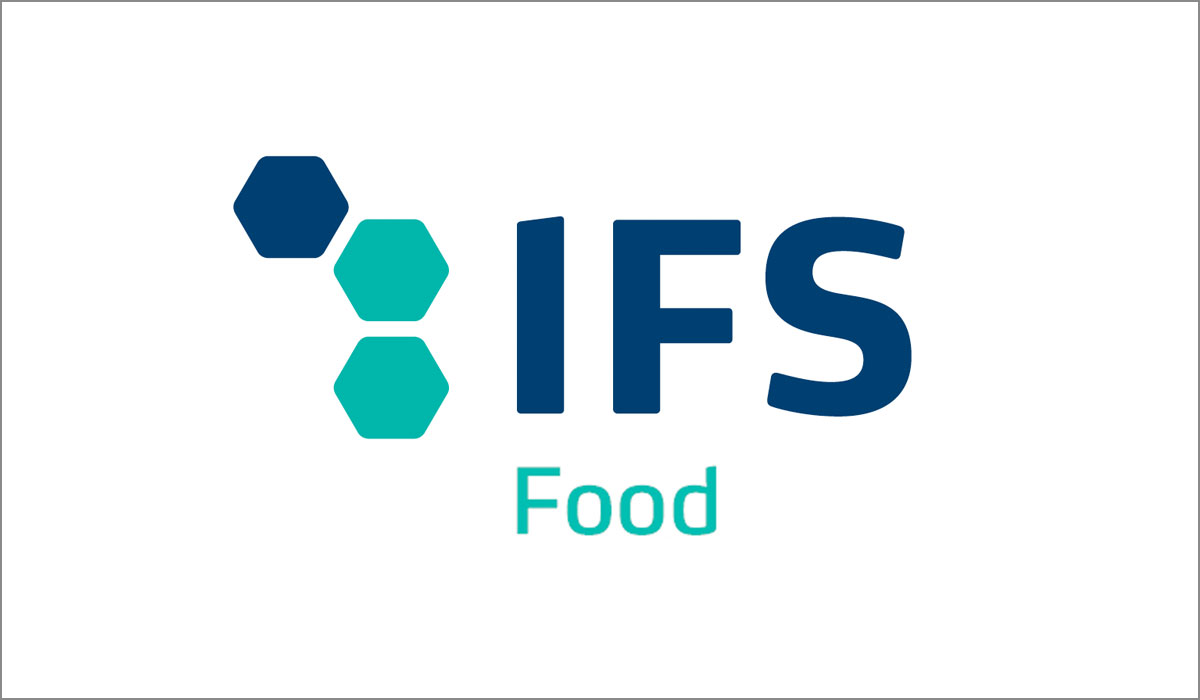

Peanuts from wholesaler August Töpfer & Co.
The traditional importer and wholesaler from Hamburg has been working closely with producers of peanut kernels and other nut kernels for many years. The wholesaler offers peanuts in top quality at fair prices. Here you can find a wide selection of different sizes and varieties of peanuts which you can buy online. From untreated peanuts and peanuts in organic quality to peanuts in 25 kilogram sacks and other bulk packaging – August Töpfer & Co. is your competent contact for tailored advice in selecting the right products.
